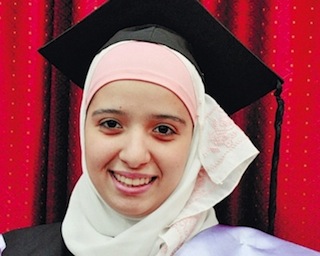By Tania Hary
Last Wednesday morning, for just under an hour, Israel’s High Court heard arguments about whether or not five women from Gaza should be able to travel to their studies at Birzeit University in the West Bank. In a watershed moment for Gisha, which has brought no less than three similar cases in its seven years of existence, and for the first time in 12 years since a ban on travel for students between Gaza and the West Bank was first imposed, the court actually instructed the state to reconsider its position. That is, reconsider it for four of the five women.
The typed-up interim decision of the court, which we received a day later, reads:
After hearing arguments, it seems to us correct to determine that the respondents will reconsider their position, and especially as regards petitioners 1-4 (because of their age).
Especially as regards petitioners 1-4. What about number 5? Suspending disbelief for a moment and imagining that the state were actually also going to consider weighing anew the case of petitioner number 5, the following is a non-lawyer’s plea on her behalf.
Petitioner number 5 has a name, Loujain. She is 18 years old and is currently enrolled in a law program at Al Azhar University in the Gaza Strip, after the army rejected her permit request to travel to the West Bank to study at Birzeit – not on security grounds but because of the general ban on student travel. Loujain was accepted to Birzeit, which has the best law program in the Palestinian territory, after earning an impressive score of 97.8 on her high school matriculation exam.
When she was still just 17 years old, Loujain came to Gisha for assistance, seeking to challenge a 12-year ban on travel. She was determined to attend the best program she could, following in her mother’s footsteps. She allowed us to use her real name when speaking to the press and to those who might have influence on the decision-making process in Israel, and agreed to be featured in an article in Haaretz.
While it is true that Loujain is younger and less exceptional than the other four petitioners, who are all established in their careers and prominent civil society leaders in Gaza, and while it’s true that there is a law program offered in Gaza, I have yet to hear a convincing argument for why Loujain shouldn’t be able to study in Birzeit. After all, the state has acknowledged that she poses no security threat and the court has now acknowledged that there is a reason to consider allowing students to travel to their studies. I remind the reader that the consideration isn’t about travel through Israeli territory, but rather about the presence of a Gazan student in the West Bank.
Despite not having heard a convincing argument, I do know why the state won’t reconsider its position with regard to Loujain. It’s because in Gaza there are many young people who may want to study in the West Bank, and allowing Loujain to do so might lead others to try to follow her example. And soon enough, we might have universities overflowing with people…. studying. In fact, before the year 2000, about 1,000 students per year were going to the West Bank every year… to study.
No one can or should deny that there are complicated security challenges in this region, or that young people, statistically, account for a large portion of these challenges. This is one of the arguments presented by the state. However, the state forgets that the vast majority of young people, in Gaza and elsewhere, are not a threat. On the contrary, in fact – they are tomorrow’s leaders and the best asset the region has to building a better future. Loujain is poised to be such a leader. She is courageous, bright and committed. She should be able to get the best education possible at the university of her choosing. Investing in Loujain and young people like her is an investment for us all.
I hope the state reconsiders its position, also with regard to petitioner number five.
Tania Hary is the director of international relations at Gisha – Legal Center for Freedom of Movement. This post was originally published on Gaza Gateway, Gisha’s blog. Gisha is an Israeli non-profit organization founded in 2005 whose goal is to protect the freedom of movement of Palestinians, especially Gaza residents.

